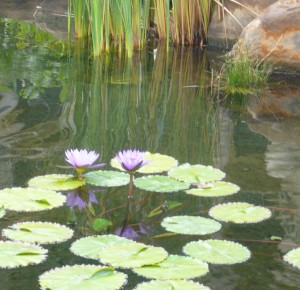 Stillness creates strength.
Stillness creates strength.
Does that seem like a paradox to you? It did to me the first time I encountered that concept, but that’s because I was convinced of this myth:
Myth: Staying busy and constantly running to do more means I am strong—and successful.
The Truth: Stillness creates strength (and busyness does not always equal success).
The adrenaline surge you get from moving at fast speeds can give you a high for a while, but movement alone will not keep you at your peak. Hours of activity must be balanced with space for stillness.
Why? Constant busyness without taking time to renew yourself—your body and your spirit—is like driving a car that’s almost out of gas and pretending it is full. You can push the petal to the metal for a few more miles, and even run on fumes for a bit, but then the engine sputters and spits—and splat, you’re stranded. (And when it comes to our bodies, it’s not always a simple matter of filling up the tank and we’re on the road again. If we push our bodies and minds too hard for too long and don’t balance our work with rest and renewal, it may take a while to get up and running again.)
Better to fill up your internal energy before your tank is empty. And one of the best ways to do that is to simply be still.
Not easy to do in these jam-packed days when our minds are more like jumping beans or, as Eastern wisdom describes it, like monkeys who can’t sit still. The incessant chase, and chatter, won’t stop unless we realize what the great sages taught centuries ago: the stillness we most need and long for is stillness of mind. Constant mental agitation, cogitation, worrying, planning, questioning, and then more worrying—these can tax our energy resources much more than we realize.
Invite a Creative Pause
There is a time for action and there is a time for stillness. A time to take in new ideas and a time to be quiet and listen to your own inner voice. That’s what the sages tell us. Take, for example, this advice from the ancient Chinese book of wisdom called the I Ching and its commentaries:
“ ‘Restlessness as an enduring condition brings misfortune.’ There are people who live in a state of perpetual hurry without ever attaining inner composure. Restlessness not only prevents all thoroughness but actually becomes a danger if it is dominant in places of authority.” (Wilhelm/Baynes, p. 129)
- In the ebb and flow of your week, do you allow your mind to rest—without the demands and dictates of your lengthy to-do list? Do give yourself permission to just be—to savor the moment and not worry about what you want to have happen in the future or are afraid will happen?
Wouldn’t it be wonderful to affirm with the great Bengali poet Rabindranath Tagore each day: “There are tracts in my life that are bare and silent. They are the open spaces where my busy days had their light and air.”
Being still is not just essential to staying sane; it’s a key that opens the door to your inner creativity. Tending to details and taking action are important, but to be really effective we need to insert a pause in our day. Those pauses for “light and air” are interludes where you can open to the inner promptings that are trying to bubble up from the wellspring deep within you.
If you don’t welcome those moments of stillness, how can you hear the whispers of your soul, telling you of the endless possibilities that await you?
Some thoughts to help you reflect on creating space for stillness:
- How have you experienced the paradox that stillness is what gives you more strength and power
- How can you intentionally create interludes of stillness, of “light and air,” in your day? (Quiet time alone, meditation, listening to calming music, playing an instrument, doing yoga or Chi Gung, walking in nature, visiting a sacred place?)
- How can you help the important people in your life make time for the stillness they need too?
- Do you have a favorite inspirational quote that reminds you of the power of stillness?





